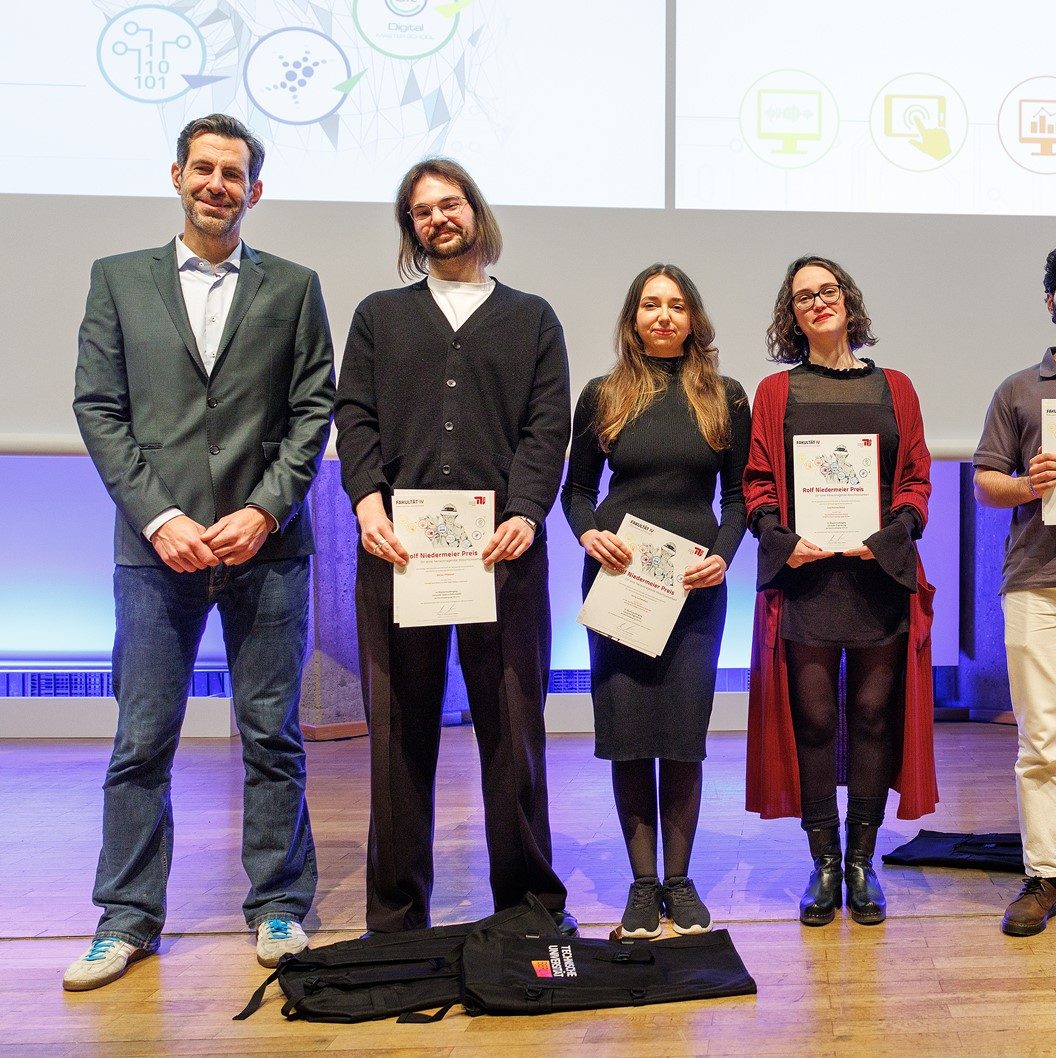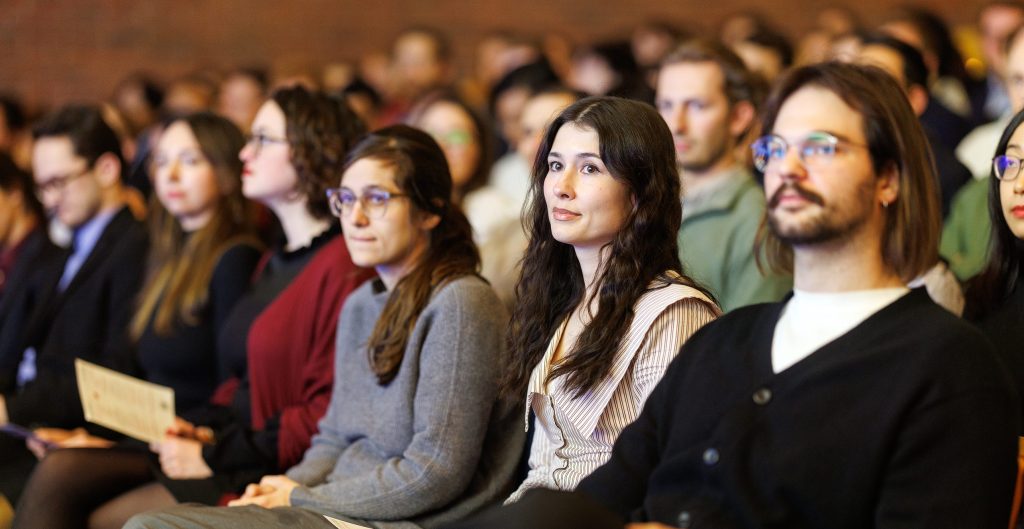SCIoI-supervised Master thesis receives Rolf-Niedermeier-Award
Adrian Pfisterer, a recently graduated master’s student at Technische Universität Berlin, has been awarded the Rolf Niedermeier Prize for his innovative thesis addressing challenges in robotic manipulation. His research was supervised by Xing Li and Vito Mengers, and Oliver Brock as advisor, all members of Science of Intelligence (SCIoI). The Rolf Niedermeier Prize, awarded annually for outstanding academic theses, recognizes exceptional achievements in computer science and related fields. Adrians work, conducted at SCIoI, stands out for its combination of theoretical depth and practical application, demonstrating how robots can better process incomplete or uncertain information to perform complex tasks.
From Human Hands to Robotic Precision
Robotic manipulation of small objects is a notoriously difficult problem. Visual uncertainties, such as occlusions or noisy sensor data, make it challenging for robots to estimate an object’s movements accurately. Adrian’s thesis addresses this by incorporating human hand movements as a guiding framework. By observing how humans interact with objects and explicitly modeling uncertainties in visual data, his method allows robots to estimate an object’s kinematic model in real-time.
“This approach enables robots to handle tasks that would otherwise be infeasible due to the limited accuracy of traditional methods,” explained Vito. Vito’s work focuses on interconnected recursive estimation, which Adrian leveraged to enhance the robots’ ability to learn from human demonstrations.
Collaborative Research at SCIoI
Adrian’s research combines concepts from two ongoing projects at SCIoI. Xing’s project, “Learning to Manipulate from Demonstration,” explores how robots can learn complex tasks by observing human demonstrations, while the project “Differentiable interconnected recursive estimation,” led by Vito, investigates principles of intelligence. Together, these projects provided the foundation for Adrians’s thesis, which tested and validated these methods in a controlled environment.








